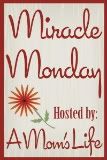What to Avoid:
Foods High In Oxalate
Most researches show that oxalate or oxalic acids are potential risks in forming kidney stones. When combine with calcium, the oxalic acid come together to form kidney stones—small shingle that form in either the kidney or the bladder. If these stones are tiny enough, they will pass out of the body without being detected. However, if these substances become too large, they can cause too much pain, making barrier of the urine flow, and sometime resulting to severe urinary tract infection.
Example of foods which are high in oxalate:
Beans
Beer
Beets
Blackberries
Black and red raspberries
Blueberries
Celery
Chard
Chocolate
Cocoa
Coffee powder (Nescafe)
Collards
Concord grapes
Currants
Dandelion greens
Eggplant
Escarole
Fruit cake
Fruit salad (canned)
Green bell pepper
Grits (white corn)
Kale
Leeks
Lemon and lime peel
Nuts
Okra
Ovaltine
Parsley
Pokeweed
Rhubarb
Spinach
Strawberries
Summer squash
Sweet potatoes
Tea
Tofu
Tomato soup
Wheat germ
Sodium
High consumption of sodium may also pose threat to formation of kidney stones. Salt and other sodium compositions in food ingredients may contribute to high amount of calcium excreted to the urine.
Food Rich in Protein
Too much intake of protein-rich foods may also contribute to increasing calcium in the urine. Thus, should be controlled or limited in your daily diet.
Some of protein-rich sources are:
• Milk
• Soy Milk
• Eggs
• Cheese
• Yogurt
• Peanut Butter
• Lean Meats, Fish, and Poultry
• Beans, Tofu, Lentils, and other Legumes
• Grains, including bread and pasta
• Nuts and Seeds
Sugar
Large amount of sugar may also increase the tendency of producing calcium oxalate stones. It is wise enough to decrease sugar intake in meals.
The article above does not convey the message that we do not eat all the foods mentioned. Our body, for proper system balance still needs the right amount of each of the food group. However, as concerned enough for our own welfare, we should have the maturing awareness of what could be the implications when we take more than what our body requires. It is not bad to eat those once in a while, just take it in the manner that is according to what we call a healthy diet. Remember, our kidneys are only two. If these will be threatened, we could not buy those again with the money that we earn.















It's always good to know.Ü I guess the key here is that we should eat things in moderation. Anything in excess could be harmful.
ReplyDeletevote for bjp
ReplyDeletewe must remember that health comes first, health is controlled by good nutrition and good exercise not forget
ReplyDeletewell, I am diagnosed kidney stone. I used to use too much sugar. I think thats the cause. thanks.
ReplyDeleteThis is the 5th time i've had kidney stones, in 3yrs i hope now w/ all this information i can start eating much better. Thank You.
ReplyDeleteSept.15,2010
what can you eat? everything a person eats is on your list. Why do you not also list some things one doesn't need to avoid, because you pretty much listed every food but a few fruits. Any suggestions on what might not cause kidney stones?
ReplyDeleteThanks for the list. I only knew of some of the foods that I could have to keep from getting stones. But now this list explians why I was just diagnosed with not only my left kidney producing stones, but know my right kidneys now is produceing stones. This is the most painful thing I have ever had to go through.
ReplyDeleteI struggle with stones and am trying to get a handle on the diet because I think my diet could be causing it since I have been searching foods I shouldnt eat or limit and this list pretty much clears out my fridge and cupboards for me. Do I have to cut these out completely or how do you limit these foods? These are mainly healthy foods that I eat on a daily basis. I really don't know what I am supposed to eat or do and if I can even take a vitamin with this problem anymore because too much calcium vitamin c and d can screw me. IDK what to do!!!
ReplyDelete